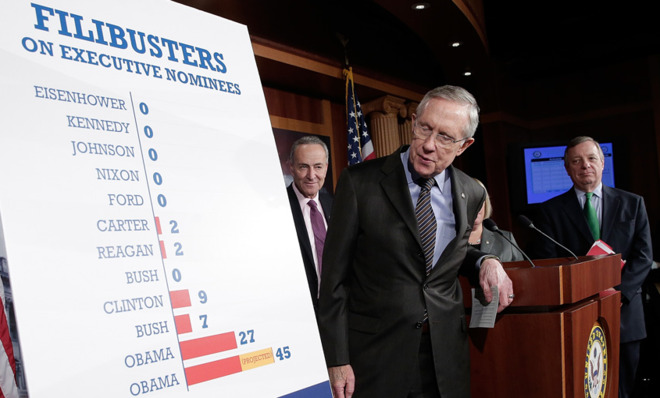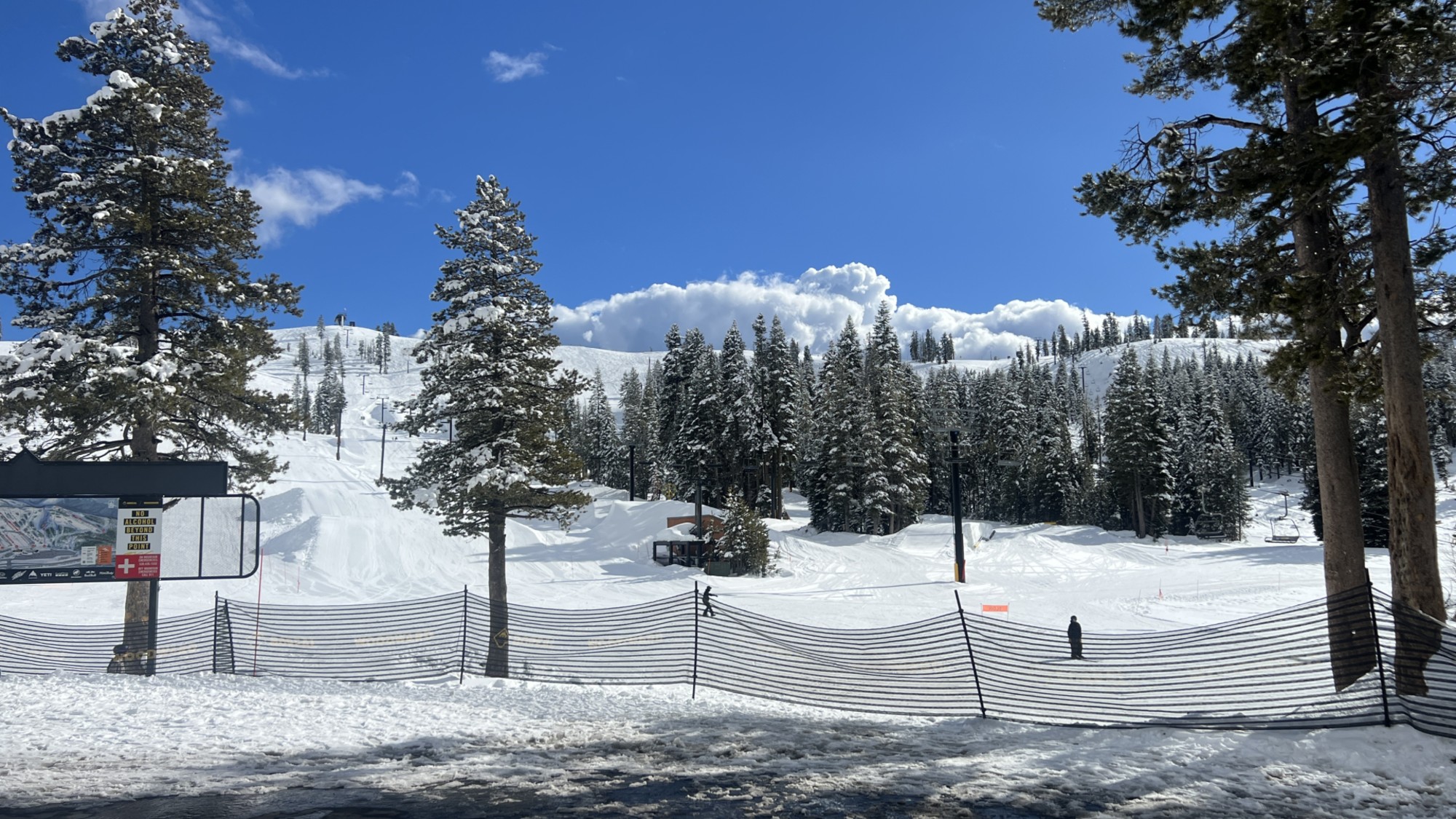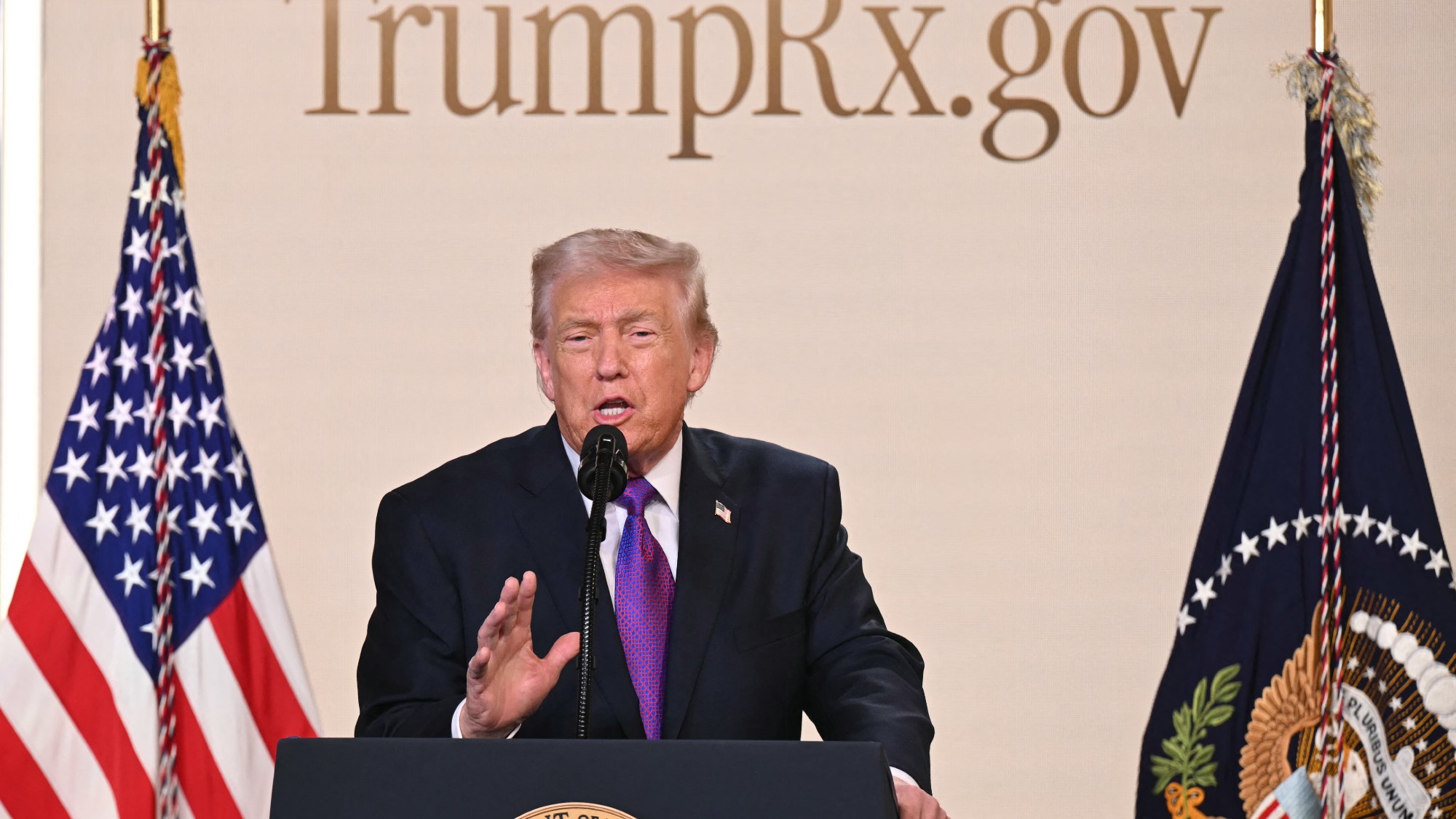The Week contest: Nuclear option
Republicans can no longer filibuster presidential nominations, a rules change that many called the "nuclear option." What would be a better term for what the Democrats just did?

A free daily email with the biggest news stories of the day – and the best features from TheWeek.com
You are now subscribed
Your newsletter sign-up was successful
This week's question: Senate Democrats recently amended the rules so that minority Republicans can no longer filibuster presidential nominations with just 41 votes — a rules change that many called the "nuclear option." Since that clichéd phrase is a bit melodramatic for a rules change, what would be a better term for what the Democrats just did?
RESULTS:
THE WINNER: Killabuster
The Week
Escape your echo chamber. Get the facts behind the news, plus analysis from multiple perspectives.

Sign up for The Week's Free Newsletters
From our morning news briefing to a weekly Good News Newsletter, get the best of The Week delivered directly to your inbox.
From our morning news briefing to a weekly Good News Newsletter, get the best of The Week delivered directly to your inbox.
Robert J. Reed, Galesburg, Ill.
SECOND PLACE: No judge left behind
Bob Peffers, San Antonio
THIRD PLACE: The bluster-buster
A free daily email with the biggest news stories of the day – and the best features from TheWeek.com
Andrew Stritch, Sherbrooke, Quebec
HONORABLE MENTIONS:
Bench pressing
William Bernsau, Jacksonville, Fla.
Common sense
Lynn Goldberg-Gursky, Enola, Pa.
New lids on the block
John D. Thompson, Pella, Iowa
Curb Your Antagonism Option
Kathy El-Assal, Middleton, Wis.
The "majority rules" rule
Kenneth R. Updegrove, Cedaredge, Colo.
Blockbuster
Alan Fraker, Greenfield, Mass.
Mutual Assured Destruction
Kevin Morgado, New Bedford, Mass.
Unblockaid
Charles Joyner, Burlington, N.C.
Democracy
Bob Bowen, Claremont, N.H.
The murder/suicide option
Cindy Cornell, Burlingame, Calif.
No dis appointment
Bill Klein, Appomattox, Va.
Disarmament
Sandra Bagnatori, San Francisco
Karma
Alfie Alschuler, Amherst, Mass.
The majority riles
Michael Maloney, Concord, N.H.
Republockin
Colby Seibold, Vancouver, Wash.
Zero Dark Forty-one
Judy Echols, Incline Village, Nev.
The Did Something Senate
John Clark, Eaton, Ohio
The 51 percent solution
Lance Cooper, Brewster, N.Y.
-
 Democrats seek calm and counterprogramming ahead of SOTU
Democrats seek calm and counterprogramming ahead of SOTUIN THE SPOTLIGHT How does the party out of power plan to mark the president’s first State of the Union speech of his second term? It’s still figuring that out.
-
 Climate change is creating more dangerous avalanches
Climate change is creating more dangerous avalanchesThe Explainer Several major ones have recently occurred
-
 What’s TrumpRx and who is it for?
What’s TrumpRx and who is it for?The Explainer The new drug-pricing site is designed to help uninsured Americans
-
 The billionaires’ wealth tax: a catastrophe for California?
The billionaires’ wealth tax: a catastrophe for California?Talking Point Peter Thiel and Larry Page preparing to change state residency
-
 Bari Weiss’ ‘60 Minutes’ scandal is about more than one report
Bari Weiss’ ‘60 Minutes’ scandal is about more than one reportIN THE SPOTLIGHT By blocking an approved segment on a controversial prison holding US deportees in El Salvador, the editor-in-chief of CBS News has become the main story
-
 Has Zohran Mamdani shown the Democrats how to win again?
Has Zohran Mamdani shown the Democrats how to win again?Today’s Big Question New York City mayoral election touted as victory for left-wing populists but moderate centrist wins elsewhere present more complex path for Democratic Party
-
 Millions turn out for anti-Trump ‘No Kings’ rallies
Millions turn out for anti-Trump ‘No Kings’ ralliesSpeed Read An estimated 7 million people participated, 2 million more than at the first ‘No Kings’ protest in June
-
 Ghislaine Maxwell: angling for a Trump pardon
Ghislaine Maxwell: angling for a Trump pardonTalking Point Convicted sex trafficker's testimony could shed new light on president's links to Jeffrey Epstein
-
 The last words and final moments of 40 presidents
The last words and final moments of 40 presidentsThe Explainer Some are eloquent quotes worthy of the holders of the highest office in the nation, and others... aren't
-
 The JFK files: the truth at last?
The JFK files: the truth at last?In The Spotlight More than 64,000 previously classified documents relating the 1963 assassination of John F. Kennedy have been released by the Trump administration
-
 'Seriously, not literally': how should the world take Donald Trump?
'Seriously, not literally': how should the world take Donald Trump?Today's big question White House rhetoric and reality look likely to become increasingly blurred